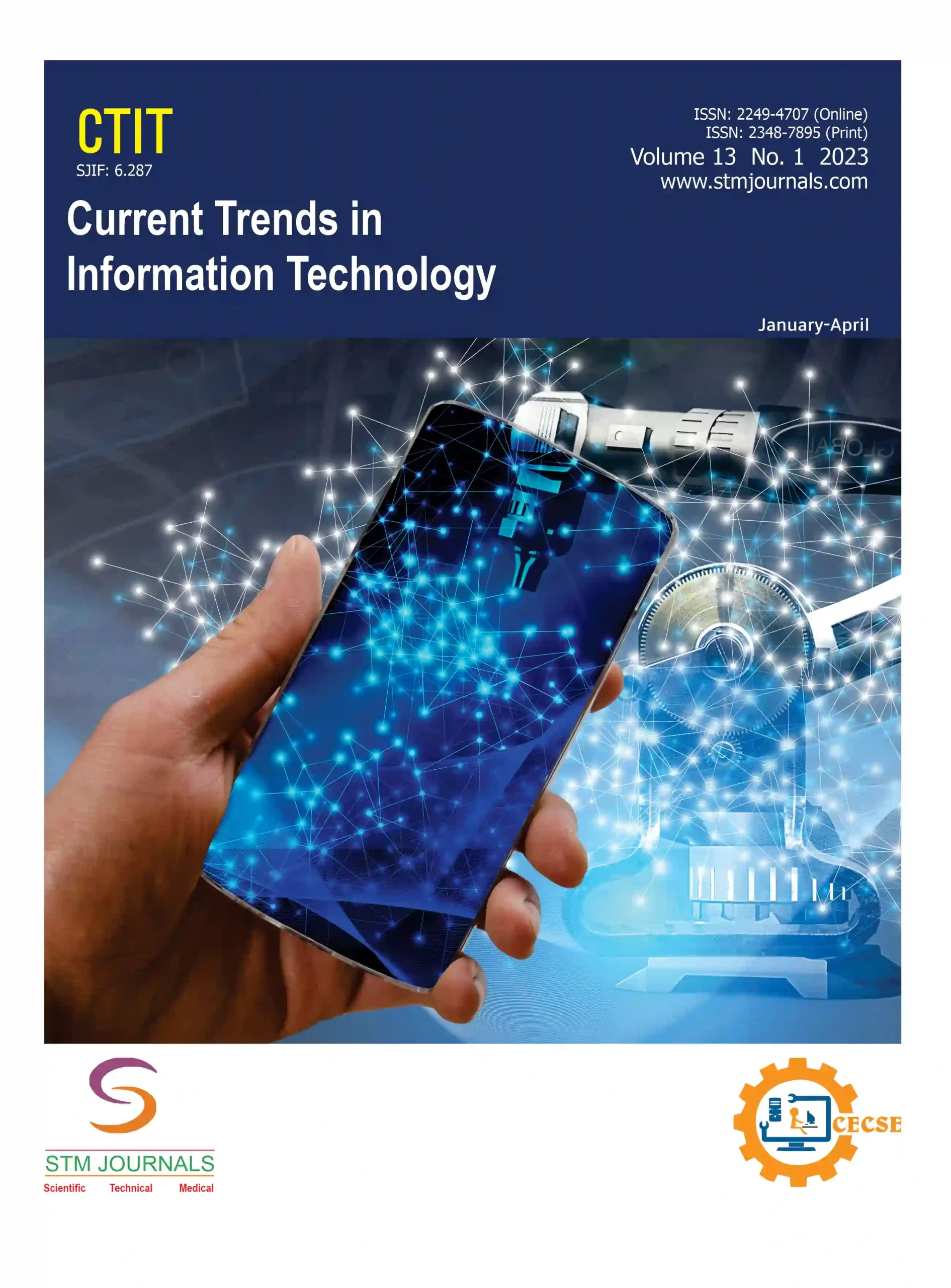Sanjay M. Salwe,
- Associate Professor and Head, Department of Library and Ph.D. Research Center, Shri Ramrao Sarnaik College of Social Work, Washim, Maharashtra, India
Abstract
In recent years, the volume of information available on the internet has grown rapidly, leading to the need for more effective ways to manage and access high-quality content. Much of this reliable and well-structured information is stored in digital libraries, which serve as centralized hubs for organized knowledge. However, despite their usefulness, managing and navigating these vast collections of data continues to present significant challenges. To address these issues, the Semantic Web offers a range of advanced technologies designed to improve the organization, retrieval, and understanding of digital content. The SEKT (Semantically Enabled Knowledge Technologies) project focuses on developing and applying these semantic tools to support the next generation of knowledge management systems. One of the core goals of the project is to examine how these technologies perform in real-world scenarios through detailed case studies. A major objective of this research is to explore how digital libraries can gain substantial benefits from integrating Semantic Web technologies into their systems.
Keywords: Digital library, semantic web, technology, web applications, network
[This article belongs to Current Trends in Information Technology ]
Sanjay M. Salwe. Semantic Network Technology and Digital Library. Current Trends in Information Technology. 2025; 15(02):13-18.
Sanjay M. Salwe. Semantic Network Technology and Digital Library. Current Trends in Information Technology. 2025; 15(02):13-18. Available from: https://journals.stmjournals.com/ctit/article=2025/view=209302
References
- Beckwith R, Fellbaum C, Gross D, Miller GA. WordNet: A lexical database organized on psycholinguistic principles. In: Zernik U, editor. Lexical Acquisition: Exploiting On-line Resources to Build a Lexicon. New York: Psychology Press; 1991. p. 211–20. doi:10.4324/9781315785387.
- Nucci M, David S, Hahn D, Barbera M. Talia: A Framework for Philosophy Scholars. In SWAP (Proceedings of the 4th Italian Semantic Web Workshop, Dipartimento di Informatica). 2007.
- Davies J, Studer R, Warren P. Semantic Web Technologies: Trends and Research in Ontology-Based Systems. Chichester (UK): John Wiley & Sons; 2006.
- Vogel D. Qualified Dublin Core and the scholarly works application profile: a practical comparison. Libr Philos Pract. 2014: 1-94.
- Kruk SR, Decker S, Zieborak L. JeromeDL-Reconnecting Digital Libraries and the Semantic Web. Chiba, Japan:[sn]. 2005 Oct.
- Pawar GR. Digital library: characteristics and importance in modern era. Recent Advancements in Science and Technology conf Proc. 2024 Feb 10; 143–146.
- Fritz DA, Fritz RJ. MARC 21 for everyone: a practical guide. Michigan: American Library Association; 2003 Jan 14.
- Koutrika G, Ioannidis Y. Rule-based query personalization in digital libraries. Int J Digit Libr. 2004 Aug; 4: 60–3.
- Kruk SR. Advanced search and browsing in digital libraries. In Proc. 2004 Nov.
- Moldovan DI, Mihalcea R. Using wordnet and lexical operators to improve internet searches. IEEE Internet Comput. 2000 Jan; 4(1): 34–43.
- Okraszewski M, Krawczyk H. Semantic web services in l2l. In Intelligent Information Processing and Web Mining: Proceedings of the International IIS: IIPWM ‘04 Conference held in Zakopane, Poland, May 17–20, 2004. Berlin, Heidelberg: Springer Berlin Heidelberg; 2004; 349–357.
- O’Murchu I, Breslin J, Decker S. Community portal survey. DERI Research Report-Semantic Web Portal Project D9. 2004.
- Powers S. Practical RDF: Solving Problems with the Resource Description Framework. Massachusetts (US): O’Reilly Media, Incorporated; 2003.
- Breslin JG, Harth A, Bojars U, Decker S. Towards semantically-interlinked online communities. In European semantic web conference. Berlin, Heidelberg: Springer Berlin Heidelberg; 2005 May 29; 500–514.
- Cafarella MJ, Etzioni O. A search engine for natural language applications. In Proceedings of the 14th international conference on World Wide Web. 2005 May 10; 442–452.
- Svensson LG. National libraries and the Semantic Web: requirements and applications. In Proceedings of the International Conference on Semantic Web and Digital Libraries (ICSD-2007), 21–23 February 2007, Bangalore, India. 2007 Feb; 101–108.
- Tormo GD, Mármol FG, Pérez GM. Towards the integration of reputation management in OpenID. Comput Stand Interfaces. 2014 Mar 1; 36(3): 438–53.
- Wang J. Language models of collaborative filtering. InAsia Information Retrieval Symposium. Berlin, Heidelberg: Springer Berlin Heidelberg; 2009 Oct 21; 218–229.
- Prasad AR, Madalli DP. Faceted infrastructure for semantic digital libraries. Libr Rev. 2008 Mar 21; 57(3): 225–34.
- Carminati B, Ferrari E, Perego A. Enforcing access control in web-based social networks. ACM Trans Inf Syst Secur. 2009 Nov 6; 13(1): 1–38.
- Rezgui Y, Métais E, Preece A, Li H. Natural language processing and information systems. Berlin Heidelberg: Springer-Verlag; 2010.
- Kruk SR, Synak M, Zimmermann K. MarcOnt–Integration ontology for bibliographic description formats. In Proceedings of the International Conference on Dublin Core and Metadata Applications. Dublin Core Metadata Initiative. 2005 Sep 12; 31(5p).

Current Trends in Information Technology
| Volume | 15 |
| Issue | 02 |
| Received | 08/04/2025 |
| Accepted | 02/05/2025 |
| Published | 02/05/2025 |
| Publication Time | 24 Days |
PlumX Metrics
